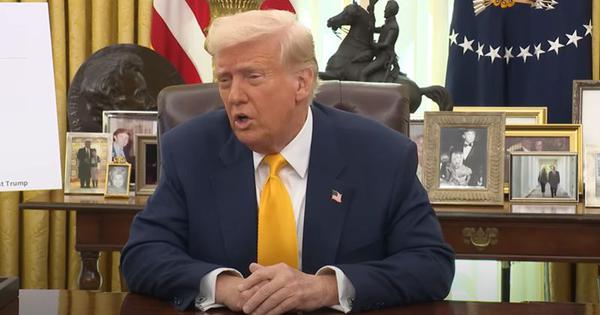US President highlights India as a key player in global drug trafficking concerns.
United States President Donald Trump has identified India, along with Pakistan and China, as one of the 23 major drug transit or illicit drug producing nations. This classification was made in a presidential determination submitted to the US Parliament on Monday, with Trump asserting that these countries pose a threat to the safety of the United States and its citizens.
The list includes other nations such as Afghanistan, the Bahamas, Belize, Bolivia, Burma, Colombia, Costa Rica, the Dominican Republic, Ecuador, El Salvador, Guatemala, Haiti, Honduras, Jamaica, Laos, Mexico, Nicaragua, Panama, Peru, and Venezuela. Notably, the document did not provide specific reasons for India’s inclusion in this designation.
While countries on the list are recognized for their role in the sourcing and transportation of illicit drugs into the United States, the US State Department clarified that such a designation does not necessarily reflect the effectiveness of a government’s counternarcotics efforts or its cooperation with the US government. Trump indicated that the factors leading to a country’s inclusion are often a combination of geographic, commercial, and economic elements that facilitate drug transit or production, irrespective of the actions taken by a government in terms of drug law enforcement.
Five nations—Afghanistan, Bolivia, Burma, Colombia, and Venezuela—were singled out in the document for their notable lack of substantial efforts in addressing drug-related issues over the past year. The US has urged these countries to enhance their counternarcotics initiatives in response to these shortcomings.
Furthermore, the report highlighted China’s significant role as the largest global supplier of precursor chemicals that are crucial for the production of illicit fentanyl. These precursor chemicals are essential in the manufacture of various drugs, including synthetic narcotics like methamphetamine and nitazenes. The US has called upon Beijing to implement stronger and more sustained measures to curtail the flow of these chemicals and to take action against the criminals involved in their trafficking.
In the context of Afghanistan, despite the Taliban’s declared ban on illegal drug production, the ongoing existence of drug stockpiles and continued production has contributed to the persistent supply of illicit drugs in international markets. Trump noted that the revenue generated from this drug trade not only finances transnational criminal organizations but also supports international terrorism.
Earlier in March, the US had labeled both India and China as state actors implicated in the direct and indirect provision of precursor chemicals and equipment used by drug traffickers, further emphasizing their roles as significant contributors to the illicit fentanyl supply chain.








